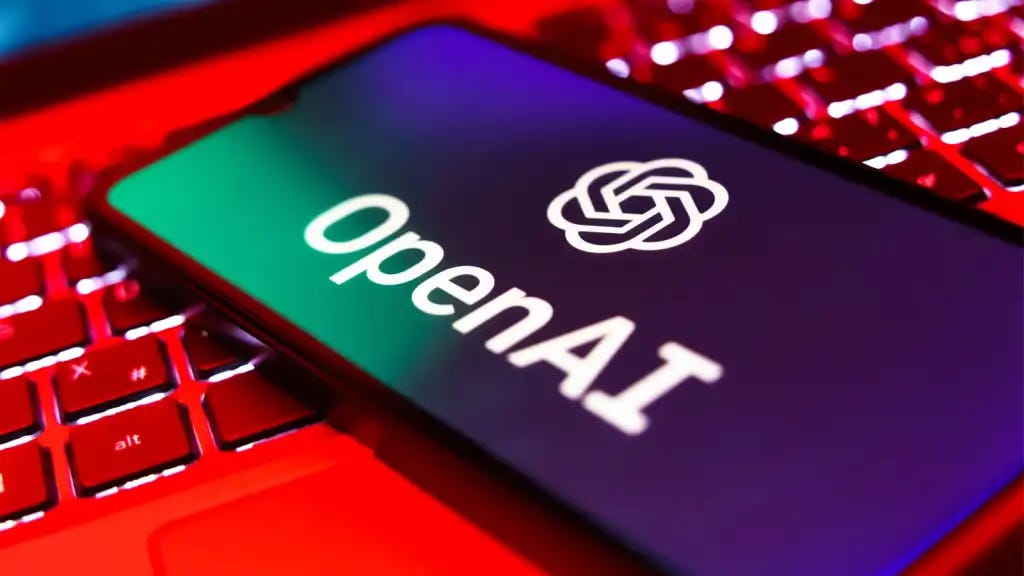1️⃣ Netflix adds AI for the indecisive
Netflix is testing a new search tool powered by ChatGPT that lets you type what you’re in the mood for - “a bit scary but not too scary,” or “funny, with dry humour.” It’s rolling out in beta for iOS users this week. Early testers in Australia and New Zealand got first access, and it’s one of several recent attempts to fix the “scroll for 20 minutes, watch nothing” problem.
2️⃣ Stripe unveils its own AI model
At its annual Sessions event, Stripe Payments announced an AI foundation model trained specifically on payments data - with better fraud detection as the headline benefit. Other launches included stablecoin-powered accounts and a new partnership with NVIDIA. Yes, the fintech giants are going full-stack AI.
3️⃣ AI could fast-track drug trials
OpenAI has been meeting with the FDA about a project called cderGPT - a system designed to use AI to speed up the drug development process. In the U.S., it can take over 10 years for new treatments to reach patients. The hope? AI could cut that time dramatically.
4️⃣ Pinterest turns outfits into prompts
Pinterest has launched a new visual AI search tool that transforms outfit screenshots into personalised, text-based shopping prompts. Users can now upload photos and receive curated suggestions in their style - helping streamline the path from inspiration to purchase.
Spotlight Story
OpenAI wants to help countries build AI - but at what cost?
This week, OpenAI launched a new initiative: “OpenAI for Countries.”
On paper, it sounds collaborative - a way to partner with national governments to develop public-sector AI systems tailored to local needs.
The offer?
Build sovereign AI infrastructure (data centers, models, compute)
Customise ChatGPT for local languages, cultures, and government services
Help deploy AI in education, healthcare, and disaster response
Do it all “aligned with democratic values”
It’s a bold idea - and one with global ambition. As part of its broader $500B Stargate expansion, OpenAI is looking to kickstart these programs in 10 countries.
But beneath the polished announcement is a much bigger question:
What does it mean when a private U.S. company offers to help govern the digital future of other nations?
The initiative explicitly positions itself as an alternative to “authoritarian” AI systems.
But it also comes with baked-in assumptions: that OpenAI’s approach represents a democratic ideal, and that governments should outsource critical AI infrastructure to an American company - one still partnered with Microsoft and closely tied to U.S. interests.
There’s a tension here.
Yes, many governments lack the technical capacity to build AI from scratch. But digital sovereignty - the right to build, manage, and control national infrastructure - has never mattered more. Especially when AI is shaping everything from how public services are delivered to how decisions are made.
OpenAI says it’s committed to co-development, not control. But as these partnerships take shape, governments will need to weigh the ease of outsourcing against the risk of outsourcing too much - not just infrastructure, but influence.
Because as AI becomes a utility, what’s being built isn’t just capability.
It’s the architecture of future power - and who gets to shape it!
AI Terminology of the Week
Vibe Coding
Vibe coding is a new approach to software development where you describe what you want in plain language - and AI generates the code to match.
Coined by Andrej Karpathy, it’s all about intention over syntax. You tell the AI the “vibe” (e.g. “a colourful, music-reactive animation”), and it builds the first version. Then you refine from there.
Why it matters:
It’s fast, flexible, and ideal for creative prototyping - especially for non-coders or anyone working in rapid product cycles.
Where you’ve seen it:
Replit, Copilot, and Cursor all support this “build first, polish later” mindset - powered by models like GPT and Codex.
AI Action Corner
Use AI to Explain the Trends You’re Seeing (Before Someone Asks You)
Not sure how to articulate that feeling you have about a shift in your field, your feed, or your industry?
Let AI help you name it, frame it, and sharpen it.
Ask:
🗣 “I’ve noticed more people talking about [insert loose trend here]. What’s going on, and what are three ways this might impact [your field/role/work] in the next 6 months?”
Pro Tip:
Add “Give me an explanation I could use in a meeting or write about online.”
PS. Ready to transform AI knowledge into actionable strategy? At Edvance AI, we specialise in strategic implementation that drives real organisational change (think workshops, AI audits and workflow automation). Reply to this email to start your AI journey!




